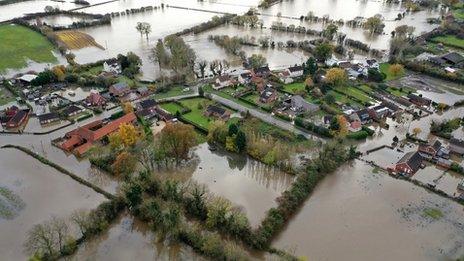Climate change 'driving UK's extreme weather'
- Published
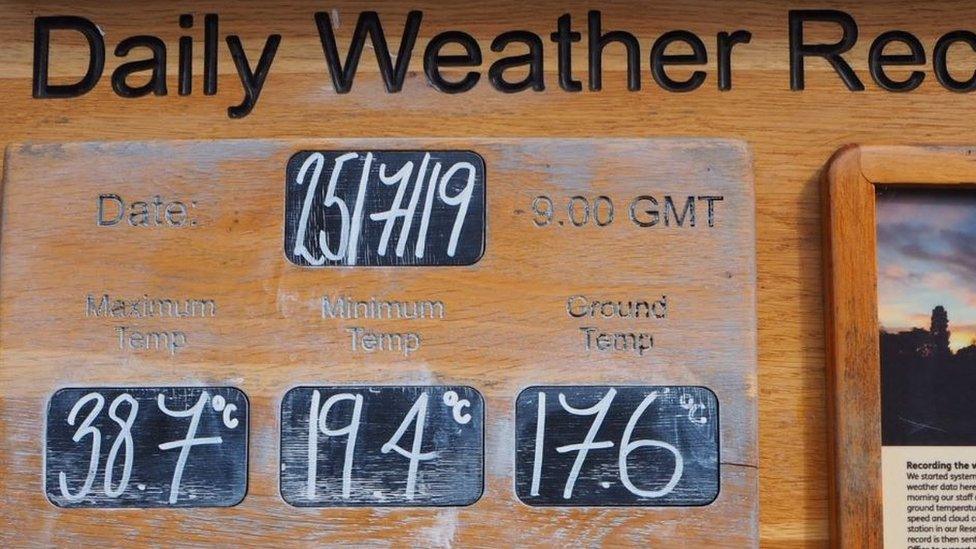
A record-breaking temperature of 38.7C (101.7F) was recorded at Cambridge University Botanic Garden in July 2019
Climate change driven by industrial society is having an increasing impact on the UK’s weather, the Met Office says.
Its annual UK report confirms that 2019 was the 12th warmest year in a series from 1884.
Although it does not make the top 10, the report says 2019 was remarkable for high temperature records in the UK.
There was also a severe swing in weather from the soaking winter to the sunny spring.
The temperature extremes were:
A new UK maximum record (38.7° C) on 25 July, in Cambridge
A new winter maximum record (21.2° C) on 26 February, in Kew Gardens, London - the first time 20C has been reached in the UK in winter
A new December maximum record (18.7° C) on 28 December, in Achfary, Sutherland
A new February minimum record (13.9° C) on 23 February, in Achnagart, Highland
No national low temperature records were set in the State of the UK Climate report, published by the Royal Meteorological Society.
What's the difference between weather and climate?
It shows that UK temperatures in 2019 were 1.1° C above the 1961-1990 long-term average.
Mike Kendon, lead author of the report, said: “Our report shows climate change is exerting an increasing impact on the UK.
“This year was warmer than any other year in the UK between 1884 and 1990, and to find a year in the coldest 10 we have to go back to 1963.”
The Central England Temperature series is the longest instrumental record of temperature in the world, stretching back to 1659.
Dr Mark McCarthy, from the Met Office, added it was a particularly wet year across parts of central and northern England.
He said Lincolnshire, Nottinghamshire, Derbyshire, Leicestershire and Cheshire received between a quarter to one third more rainfall than normal. For northern England this was the ninth wettest year in a series from 1862.
He said: "It’s worth noting that since 2009 the UK has now had its wettest February, April, June, November and December on record – five out of 12 months."
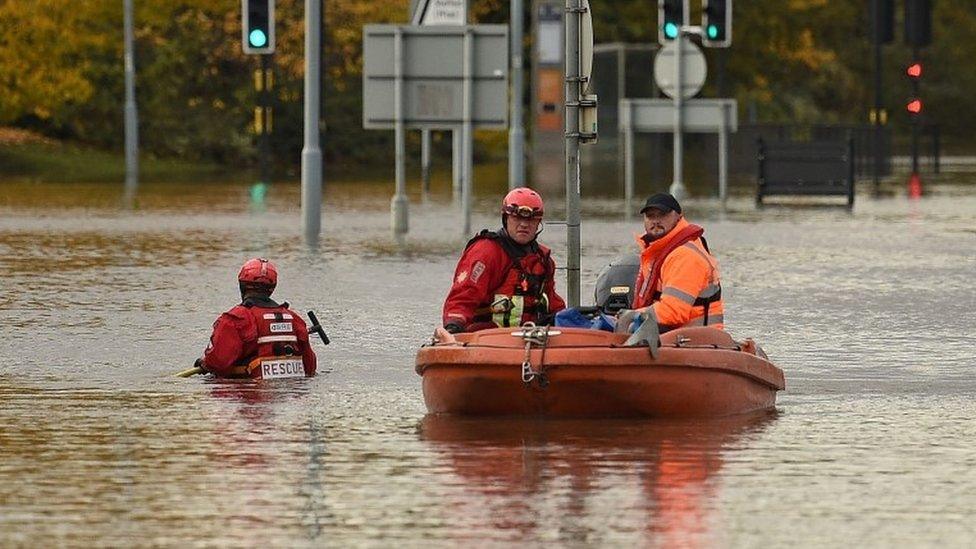
Rescuers used boats to reach people trapped in Rotherham as days of persistent rain led to almost 50 flood warnings across England in November 2019
Hannah Cloke, professor of hydrology at the University of Reading, identified a number of concerning trends.
She said: "As well as extreme hot temperatures, the stand-out weather events in 2019 were the many different types of floods, causing millions of pounds worth of damage and causing misery to many people.
“The picture that emerges is of the multiple flooding threats that are facing the UK, many of which are exacerbated by climate change."
She cited as examples summer flash floods caused by extreme downpours, extensive autumn and winter river floods caused by persistent heavy rain and storms, and a backdrop of continued sea-level rises heightening the risk of coastal floods.
Professor Ilan Kelman, from University College London, said heat would become an increasing problem.
He said: "These UK records show that if we do nothing about stopping climate change we are on track for summer heat and humidity which would be highly dangerous for us to be outdoors - and to be indoors without continual cooling.”
Gareth Redmond King from the World Wide Fund for Nature (WWF) said: “These are records we shouldn’t be breaking. Tropical temperatures may be nice on occasion, but here in the UK they are a stark reminder that we are in a climate crisis.
“The whole world has to act ahead of next year’s UN climate conference; and as hosts we must urgently raise our ambition if the UK is to show global leadership.
“Right now, that means investing in a green recovery in the coming budget and spending review, for the sake of both people and planet.”
Follow Roger on Twitter., external

'GUIDED BY SCIENCE': A dangerous gamble with people’s lives or a sound scientific approach?
I MAY DESTROY YOU: The groundbreaking drama making headlines in lockdown

- Published6 May 2020
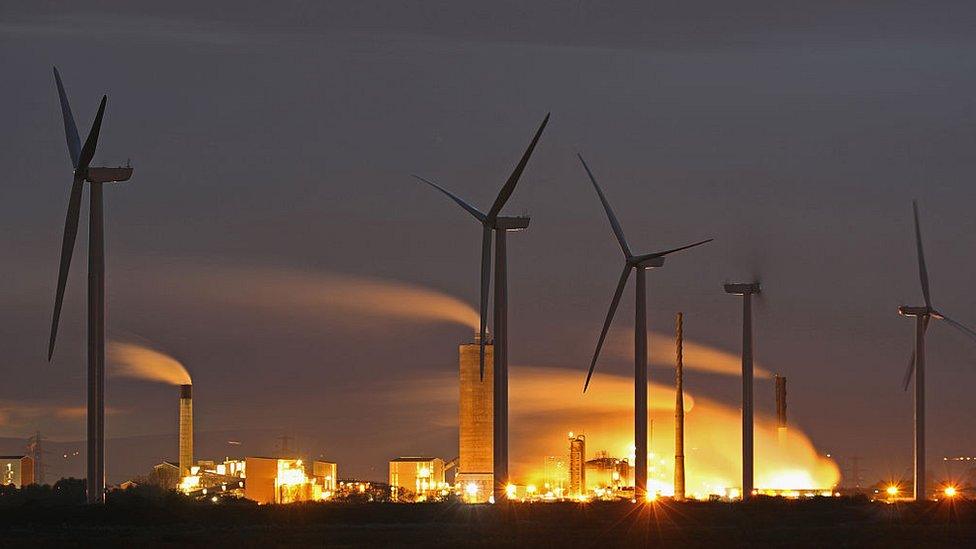
- Published14 January 2020
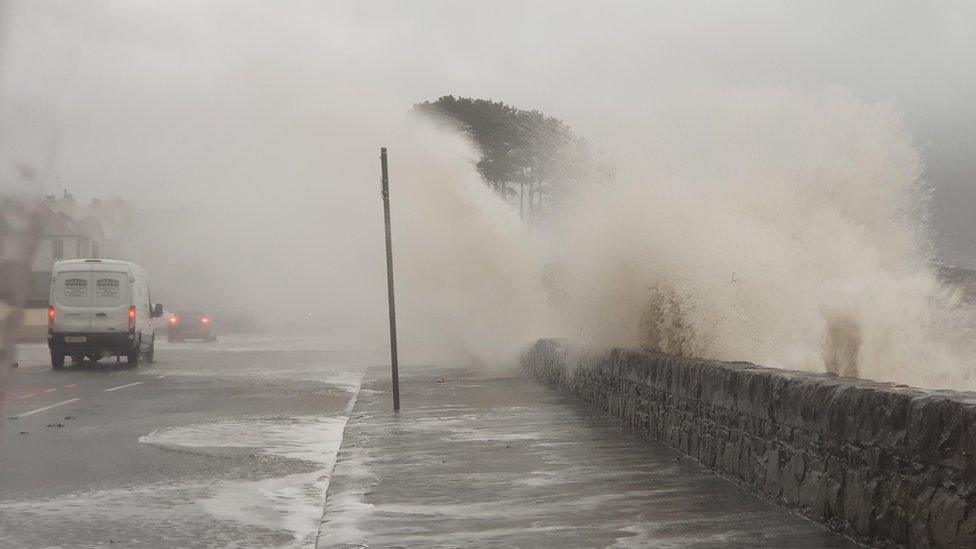
- Published12 November 2019
